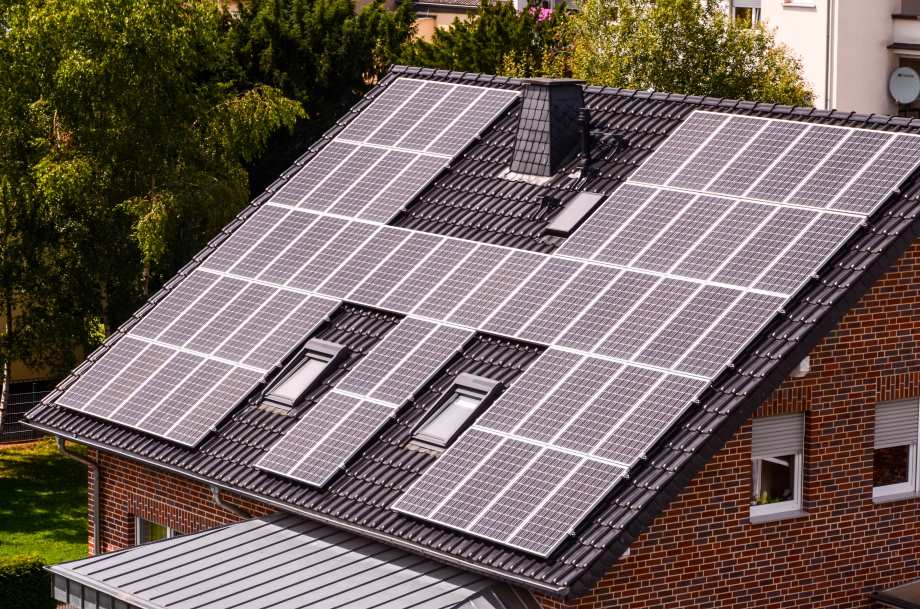The UK has taken a strong stance towards adopting sustainable living standards over the years. Research by the National Housing Federation has shown that UK homes produce more carbon emissions than the total number of cars in the country. Due to leaky insulation and gas central heating, 25 million British homes produce 58.5 million tonnes of carbon dioxide annually. Thus, the need for more energy-efficient homes has risen in recent years.
An Energy Performance Certificate (EPC) shows the energy efficiency of homes. EPC rating values are a necessity by law whenever a property is built, sold, or rented. EPC rating values are between A (most energy efficient) and G (least energy efficient) and are scored out of 100. To reduce the carbon footprint and make an economical choice, the government has set a target that all homes should be in band C by 2030.
If you’re also looking for EPC rating new build properties, Gio Property Solutions is your trusted supplier. Our experts will not only assess your property but also guide you through the next steps.
This blog looks at the steps that need to be taken once you receive your EPC rating values.
Understand Your Ratings vs National Average
The first step is to understand your property’s energy efficiency compared to the national average. The median energy efficiency score in the UK is 60, equivalent to band D. The higher your energy rating, the lower your bills will be. If you fall below this level, you need to take immediate action, but you can gradually adapt the required changes for scores above this.
The EPC rating guide will have an estimate of your energy usage and related costs. For a property buyer or renter, this can serve as a guide on whether to purchase/lease the property. It’ll help provide a picture of the amount of money that’ll be saved on energy bills and also how environmentally sustainable and legally compliant the property is. It can also serve as a guide on how you can improve your current EPC rating values.
Review Improvement Recommendations
There’s always scope for improvement when it comes to EPCs. Your EPC certification will provide suggestions for improving your energy efficiency. It’ll also provide details regarding the implementation cost and how much you’ll save annually.
Some of the most common recommendations in the EPC rating guide are:
- Choosing LED lights
- Insulation of the hot water cylinder
- Installing heating controls
- Using a condensing boiler
- Using double-glazed windows
- Upgrading loft insulation
- Insulating the floor
- Installing wall insulation and solar panels
Implement Energy-Efficient Measures
If you feel overwhelmed by the above recommendations, we suggest prioritising high-impact changes first, like replacing worn-out insulation or installing double-glazed windows.
You must also consider both short- and long-term sustainability impacts and create a budget. Implementing these changes can be cost-intensive initially, but they’ll help you save money over time. Work with authorised contractors accredited by governmental bodies like the Microgeneration Certification Scheme (MCS) to implement the upgrades.
These contractors are aware of the latest developments and can help you make the most of your budget.
Monitor and Control Energy Efficiency
Your work doesn’t end with implementing changes. You must monitor their impact, including checking your energy bills and understanding how much you’re saving every month.
Secondly, keep all related paperwork, like invoices. Retaining this information will help you during the property’s new EPC rating system process if you decide to rent in the future, or when you come to sell. This will help you convince future renters/buyers that your property follows the latest energy efficiency methods.
Consider Long-Term Sustainable Initiatives
When implementing energy efficiency measures on your property, it’s important to consider long-term sustainability. Reducing your dependence on non-renewable heating sources can be a big leap in helping save the environment.
Look for renewable energy sources like solar PV (photovoltaic) panels, air-source heat pumps, or ground-source heat pumps. If you’re building a new property, you can implement energy conservation right from the construction phase.
These measures will save money on utility bills and create a long-lasting impact on maintaining the ecological balance. The government also encourages choosing alternative energy sources, and several schemes and initiatives provide financial incentives.
Look Up Government Incentives
There’s EPC rating new legislation and assistance from the government that makes it possible for you to choose alternative measures to heating your homes. These can be highly beneficial as the initial investment can be quite steep and can deter people from adopting them.
Here are some popular energy-efficient schemes to explore:
- Boiler Upgrade Scheme (BUS)
- Great British Insulation Scheme
- Home Upgrade Grant
- Energy Company Obligation
- Sustainable Warmth Competition
- Warm House Discount Scheme
- The Social Housing Decarbonisation Grant
Choose Gio Property Solutions for Your EPC
EPC rating values can significantly impact your property price or rental income. It also has a significant impact on your annual expenses, as well as the environment. For professional advice on certification and post-certification phases, seek our help at Gio Property Solutions.
Our experts can guide you through the EPC rating guide and the best measures to implement.
Contact us today to learn more about our services.


